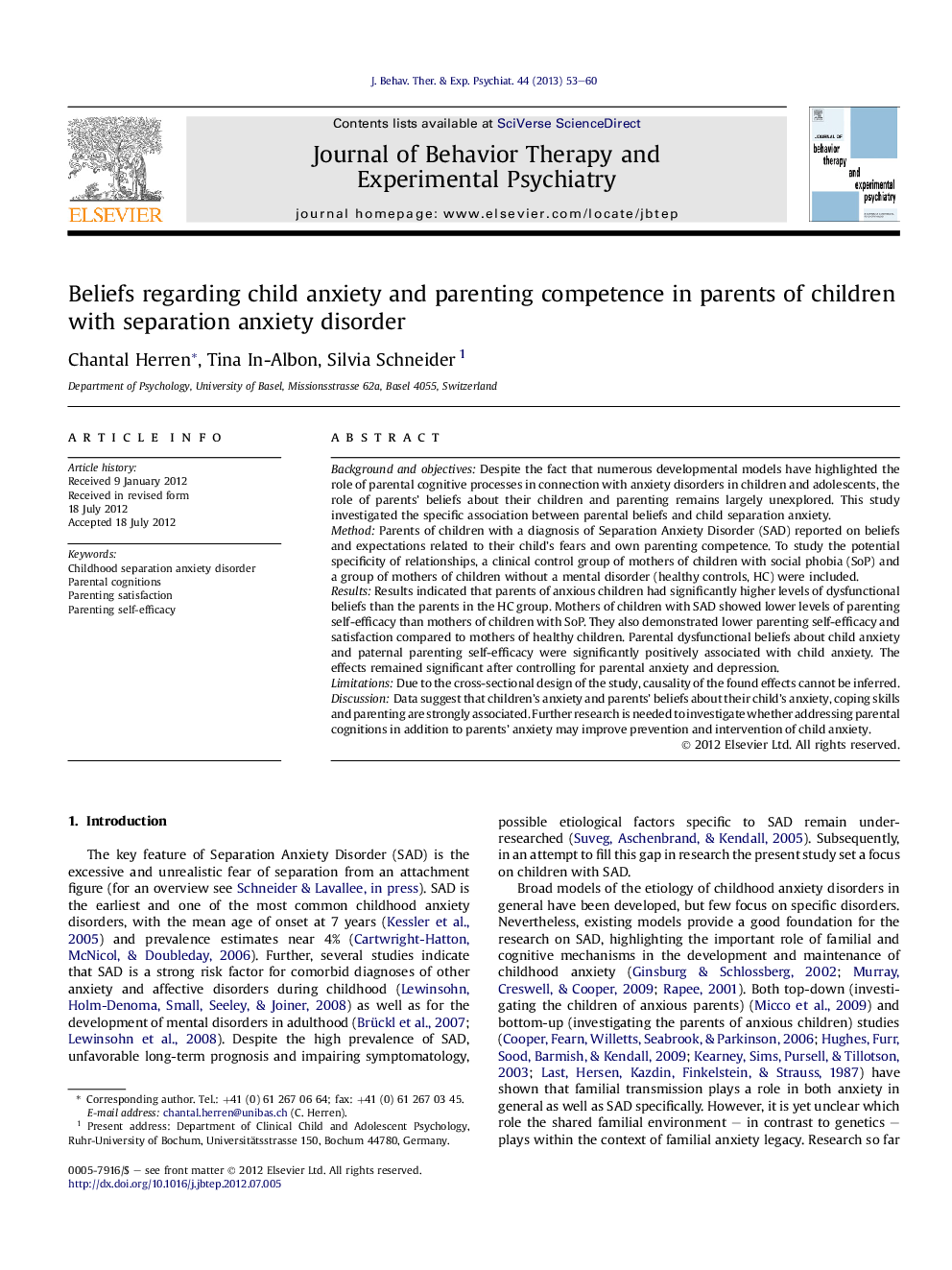| Article ID | Journal | Published Year | Pages | File Type |
|---|---|---|---|---|
| 910374 | Journal of Behavior Therapy and Experimental Psychiatry | 2013 | 8 Pages |
Background and objectivesDespite the fact that numerous developmental models have highlighted the role of parental cognitive processes in connection with anxiety disorders in children and adolescents, the role of parents' beliefs about their children and parenting remains largely unexplored. This study investigated the specific association between parental beliefs and child separation anxiety.MethodParents of children with a diagnosis of Separation Anxiety Disorder (SAD) reported on beliefs and expectations related to their child's fears and own parenting competence. To study the potential specificity of relationships, a clinical control group of mothers of children with social phobia (SoP) and a group of mothers of children without a mental disorder (healthy controls, HC) were included.ResultsResults indicated that parents of anxious children had significantly higher levels of dysfunctional beliefs than the parents in the HC group. Mothers of children with SAD showed lower levels of parenting self-efficacy than mothers of children with SoP. They also demonstrated lower parenting self-efficacy and satisfaction compared to mothers of healthy children. Parental dysfunctional beliefs about child anxiety and paternal parenting self-efficacy were significantly positively associated with child anxiety. The effects remained significant after controlling for parental anxiety and depression.LimitationsDue to the cross-sectional design of the study, causality of the found effects cannot be inferred.DiscussionData suggest that children's anxiety and parents' beliefs about their child's anxiety, coping skills and parenting are strongly associated. Further research is needed to investigate whether addressing parental cognitions in addition to parents' anxiety may improve prevention and intervention of child anxiety.
► Specific association between parental beliefs and child separation anxiety. ► Parenting self-efficacy is lower in mothers of children with SAD than with SoPh. ► Child anxiety and parental beliefs about their child's coping skills are associated. ► Child anxiety and parental beliefs about parenting are strongly associated.
